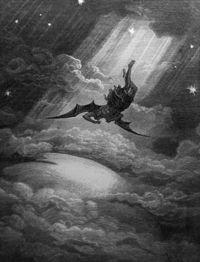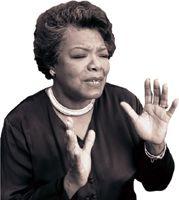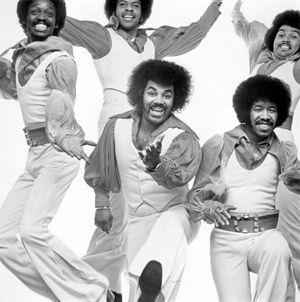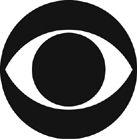Decoded (52 page)
Authors: Jay-Z
Tags: #Rap & Hip Hop, #Rap musicians, #Rap musicians - United States, #Cultural Heritage, #Jay-Z, #Entertainment & Performing Arts, #United States, #Music, #Rich & Famous, #Biography & Autobiography, #Genres & Styles, #Composers & Musicians, #Biography

6.
Brown Sugar
was a movie starring the fly Sanaa Lathan (and based in part on the life of my collaborator dream hampton, coincidentally).
7.
I’m in Los Angeles because that’s where Big was murdered.
8.
Although
evangelist
shares a bar with and picks up the rhyme from
Los Angeles,
it’s actually the beginning of the sentence that continues in the next bar, or after the line break when you read it in print. The sentence is:
Like an evangelist I can introduce you to your maker.
But when you hear it it sounds like I
n Los Angeles, like an evangelist.
But what could that possibly mean? It plants something strange in the middle of the song and adds weight to those words
Los Angeles
and
evangelist,
even if they’re out of context. I like playing with the line breaks like that to create strange lyrical effects.
9.
Being reduced to ashes brings you “closer to nature” by returning you to the dust, which is also another indirect biblical echo.
10.
They need to hope their debts are paid up and they’re all square with whatever god they worship, because it’s over. I’ve played a lot with the language of the threat in my songs—I even have a whole song called “Threats”—but in this song, there’s something more sinister about the threat, something more serious, which is partially conveyed by the use of biblical and religious imagery.
11.
The “I’m coming” is another near-religious phrase. It implies that I’m not just plotting and planning to get you and you can maybe plot and plan to escape. This is serious. You killed my nigga. I’m coming like a force of nature, or even something supernatural, something you can’t oppose or prevent, because my cause is righteous and my intent is pure. All you can do is make sure your casket’s picked out and you’ve gotten right with God because death is inevitable. It’s a dark sentiment, but that’s how revenge can feel, like it’s so right and just can’t be stopped. It’s the perfect feeling for this song.
12.
The lines here are staggered and the references come in a fusillade. The bullets in the Koch automatic spray, and the holy water you get wet with is your own blood. A sabbatical is one way to refer to taking a break, so is “taking six”—but the break I’m talking about is permanent: you’ll “cease to exist.” Take Six is also the name of an a cappella gospel group—another religious reference—whose big hit was “Spread Love.” I used to freestyle over that song when I toured with Big Daddy Kane as a teenager, the a cappella rhythms they created with their voices were like a harmonic human beat box.
13.
Another staggered line. The previous line’s emphatic
church
ties to this line’s reference to Don Bishop, the pimp/pastor whose catchphrase is
chuuuurch!
14.
At your funeral, of course.
15.
This connects back to the first line in the verse where I mention “Brown Sugar” by D’Angelo; “Devil’s Pie” was another song by D’Angelo from his
Voodoo
album. That song starts off
fuck the slice want the pie / why ask why till we fry.
This verse is like a Devil’s Pie, a complete indulgence in evil thoughts.
16.
I’m now talking about Biggs’s brother, Bobalob. We called him that because of his ball skills. He could jump really high so they threw him an alley oop or lob passes a lot.
17.
This last verse is more autobiographical. I’m no longer the killing machine of the first two verses, now I’m just someone suffering through the loss of a friend, dreaming of revenge but waking up with just sadness.
18.
Bob was driving a car in the Bronx when he was shot—the car crashed after the bullets connected.
19.
This series of reverses is a more honest account about how I’m thinking about the deaths of these two friends. Revenge as a fantasy feels glorious in a dark way, but doesn’t solve the real problem, which is that they’re gone. The only thing that would bring them back is this impossible prayer to reverse time.
20.
Just as I started the song with a prayer—
Lord forgive him
—I’m ending it with one. The first prayer asks for forgiveness for an act of murder; the last asks God to forgive the victim of a murder and make a way for him through the proverbial pearly gates of the afterlife.
21.
I believe that intentions are a form of reality. Even having that idea of murderous revenge in your heart is dangerous.
22.
Why do people trip over into the dark side, into murder and vengeance? It’s not the “Devil.” It could stem from all kinds of things: abandonment, deprivation, the loss of a loved one. All those things can make you question your faith in the universe or in the idea of a just God. But that evil inside is something we all have to find a way to deal with, or it’ll take us over.
23.
Some people have used this song as evidence that I worship the devil, which is another chapter for the big book of stupid. It’s really just laughable. But the sad part is that it’s not even remotely a song about devil worship! It’s a song about the intersection of some basic human emotions, the place where sadness meets rage, where our need to mourn meets our lust for justice, where our faith meets our inclination to take matters into our own hands, like karmic vigilantes. People who hear the word
Lucifer
and start making accusations are just robbing themselves of an opportunity to get in touch with something deeper than that, something inside their own souls.

DECEMBER 4TH
1.
My mother actually narrated these stories on the record. She’s got a beautiful voice, like Maya Angelou or something.

2.
It’s like the line from the Joni Mitchell song “Big Yellow Taxi” (which Janet Jackson and Q-Tip sampled),
you don’t know what you got till it’s gone.
3.
A reference to Biggie’s line in “You’re Nobody (Til Somebody Kills You)”:
My sycamore style, more sicker than yours.
4.
I didn’t give her pain in childbirth, but I made up for it later. My mother didn’t talk about it a lot, but she was scared for me when I really hit the streets. At the same time, she knew I had to figure some things out for myself.
5.
My behavior was purposeful, but it was never my purpose to cause her pain.
6.
I’m making the point here that poverty, as bad as it is, was one reason why I ended up hustling, but there were deeper reasons, demons that I had stemming from abandonment.
7.
The sample that Just Blaze used for this track is a song from the Chi-Lites, a seventies soul group in my parents’ collection. The sample includes an ad lib from that song:
What’s wrong, you look like you lost your best friend, is it something that I’ve done again?

8.
This is a reference to “Insane in the Brain,” by Cypress Hill.
9.
Now the shit matches my shirt.
10.
The money isn’t just about money. It’s about finding a sense of worth in the world—after you’ve been told you’re worthless. Status—and self-esteem—are really what the money buys you.
11.
I would hit my mother with cash and tell her I picked it up from shows I was doing—a transparent lie since Jaz and I weren’t exactly raking in big money for performing back then.
12.
Of course, ’96 was the year
Reasonable Doubt
came out, and more importantly for this song, it was the year that my rapping stopped coming “second to me moving this crack.”
13.
This is a song that strips all the glamour out of the drug game. The best thing I say about it is that it was a source of adrenaline and “spoils,” which is a word with two opposite meanings, of course: Spoils can be a reward, but the word itself implies that the reward is tainted, spoiled, by what you have to do to get it.
14.
A “drop” is a convertible, which makes you easy to touch.
15.
The first and the fifteenth are the days when government checks went out, and the fiends would rush drug dealers to get fixed, blow their whole check on a weekend of smoke.
16.
I keep one eye open / like CBS
—this is a line from “Can I Live.”

17.
A drought is when your drug supply runs low. That’s when you really find out who you are in the streets, because you have to figure out some way to survive it. It’s also when things can get especially hectic and violent—in “Public Service Announcement,” on the same album, I make the point:
I get my / by any means on / whenever there’s a drought / get your umbrellas out / because that’s when I brain storm.
Other books
Genteel Pagan: The Double Life of Charles Warren Stoddard by Roger Austen
Blind Side Of Love by Rinyu, Beth
Billionaires Meet Millionaire (A Steamy Romance) by Jason Vasha
Everything I Ever Wanted by Jo Goodman
Tressed to Kill by Lila Dare
Floods 7 by Colin Thompson
Cosmos Incorporated by Maurice G. Dantec
Iron Rods: 1 (Strip Club) by Brenna Zinn
Asteroid Man by R. L. Fanthorpe
Mick Sinatra: For Once In My Life by Mallory Monroe
